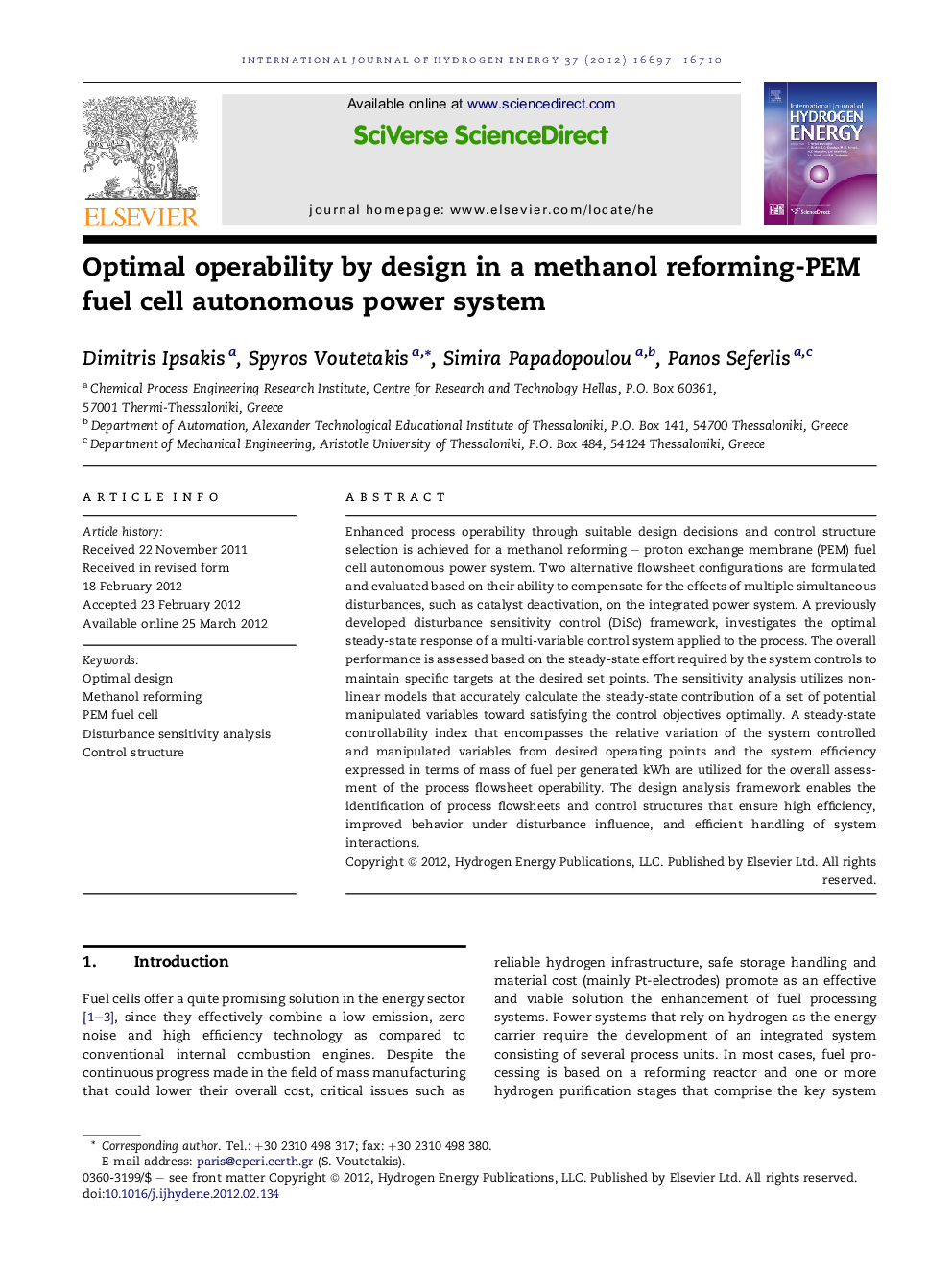| Article ID | Journal | Published Year | Pages | File Type |
|---|---|---|---|---|
| 1282203 | International Journal of Hydrogen Energy | 2012 | 14 Pages |
Enhanced process operability through suitable design decisions and control structure selection is achieved for a methanol reforming – proton exchange membrane (PEM) fuel cell autonomous power system. Two alternative flowsheet configurations are formulated and evaluated based on their ability to compensate for the effects of multiple simultaneous disturbances, such as catalyst deactivation, on the integrated power system. A previously developed disturbance sensitivity control (DiSc) framework, investigates the optimal steady-state response of a multi-variable control system applied to the process. The overall performance is assessed based on the steady-state effort required by the system controls to maintain specific targets at the desired set points. The sensitivity analysis utilizes non-linear models that accurately calculate the steady-state contribution of a set of potential manipulated variables toward satisfying the control objectives optimally. A steady-state controllability index that encompasses the relative variation of the system controlled and manipulated variables from desired operating points and the system efficiency expressed in terms of mass of fuel per generated kWh are utilized for the overall assessment of the process flowsheet operability. The design analysis framework enables the identification of process flowsheets and control structures that ensure high efficiency, improved behavior under disturbance influence, and efficient handling of system interactions.
► Evaluation of different process flowsheets in a methanol reforming-fuel cell system. ► Exploitation of a disturbance rejection framework and rigorous control structure analysis. ► Nonlinear steady-state process models are utilized in a rigorous optimization methodology. ► A set of manipulated and controlled variables are evaluated in hierarchical order.
